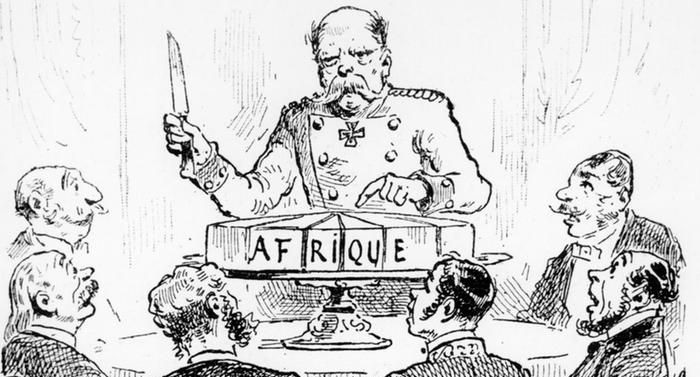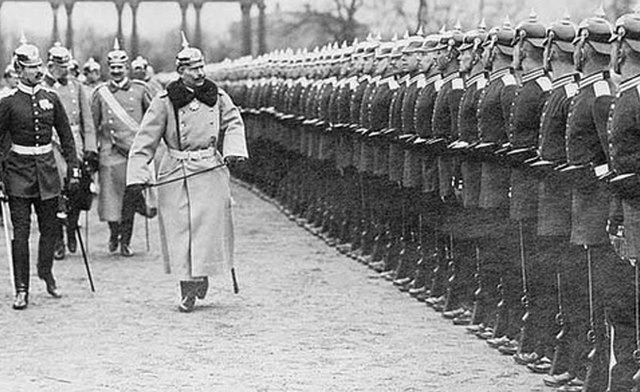| Causes of World War I |
| Introduction |
| The Rise of Nationalism |
| Imperialism and Militarism |
| Alliances and Treaties |
| The Assassination of the Archduke |
 |
Imperialism
The late 19th and early 20th centuries marked a period of intense competition between European powers for territories outside of Europe, which led to the rise of imperialism. This period was characterized by the acquisition of colonies, the establishment of protectorates, and the imposition of economic and political dominance over non-European countries. The causes of imperialism were numerous and complex, ranging from economic and strategic interests to ideological beliefs and national pride.
Economic interests were a primary motivation for imperialism. The industrial revolution had led to a significant increase in European production and trade, which in turn created a demand for raw materials and new markets. By acquiring colonies and territories overseas, European powers could secure access to these resources and markets, which would support their growing economies. Furthermore, imperial powers often forced their colonies to trade only with them, which ensured that they had a monopoly on the colony's resources and markets.
Strategic interests also played a role in the rise of imperialism. The acquisition of colonies allowed imperial powers to establish naval bases and refueling stations, which would help them maintain control over strategic waterways and shipping routes. Additionally, by controlling territories around the world, European powers could project their military power and influence beyond their borders.
Ideological beliefs also contributed to imperialism. Many Europeans believed that their civilization was superior to others and that it was their duty to "civilize" and "Christianize" non-European peoples. This belief, known as the "white man's burden," led to a wave of missionary activity in the colonies, as well as efforts to impose European values and customs on non-European societies.
National pride also played a role in the rise of imperialism. Many Europeans saw the acquisition of colonies as a symbol of their nation's greatness and power. Imperial expansion was also seen as a way to assert dominance over other European powers, particularly in the wake of the Franco-Prussian War.
The rise of imperialism had significant consequences for both European and non-European societies. For European powers, imperialism led to increased competition and tension between nations, as well as increased military spending to maintain their colonial empires. Non-European societies, on the other hand, suffered under the yoke of foreign domination, with their resources exploited for the benefit of European powers. Additionally, the imposition of European values and customs often led to the erosion of traditional cultures and the disruption of social and economic systems.
Militarism
 |
The rise of militarism was one of the major causes of World War I. Militarism refers to the glorification of military power and the belief that a country should maintain a large, well-trained military force to protect its interests and project its power abroad. In the years leading up to the war, many European nations saw a significant increase in militarism, which contributed to the complex web of alliances and tensions that ultimately led to the outbreak of war.
One of the key factors driving the rise of militarism was the growth of nationalism in Europe. As nations became more unified and identified more closely with their own people, they also became more competitive with one another. Many countries believed that the size and strength of their military were critical to their national identity and power. This belief was particularly pronounced in Germany, where Kaiser Wilhelm II promoted the idea of a strong and dominant Germany, backed by a powerful military.
Another factor driving the rise of militarism was the development of new military technologies. Advances in weapons and tactics made it increasingly possible for nations to project power beyond their borders and engage in wars of conquest. This led to a sort of arms race, as nations sought to acquire the latest weapons and technologies to stay ahead of their rivals.
In addition, many European nations saw military conquest and expansion as a way to bolster their economies. A strong military was seen as a way to secure access to resources and markets, which would help the nation grow and prosper. This idea was particularly pronounced in the Austro-Hungarian Empire, which sought to expand its territory and influence in the Balkans.
The rise of militarism had significant consequences for the lead-up to World War I. The arms race and competition for military dominance contributed to the complex web of alliances and tensions that ultimately led to the outbreak of war. As nations competed with one another, they formed alliances and signed treaties, creating a system of mutual defense that made it difficult to contain conflicts and prevent war.
Furthermore, the focus on military power led to a neglect of diplomacy and other means of resolving conflicts. Diplomatic efforts to prevent war were often seen as a sign of weakness, and leaders who sought to avoid conflict were often criticized for being too soft. This meant that when crises arose, such as the assassination of Archduke Franz Ferdinand, there was little willingness to negotiate or compromise.